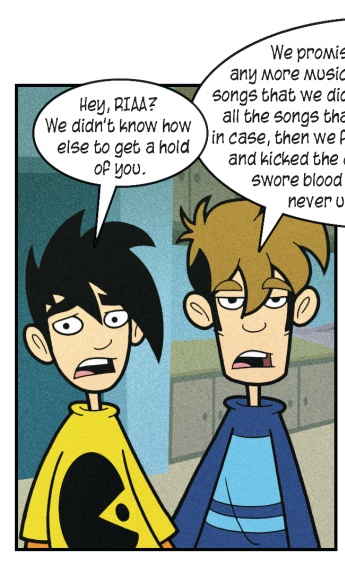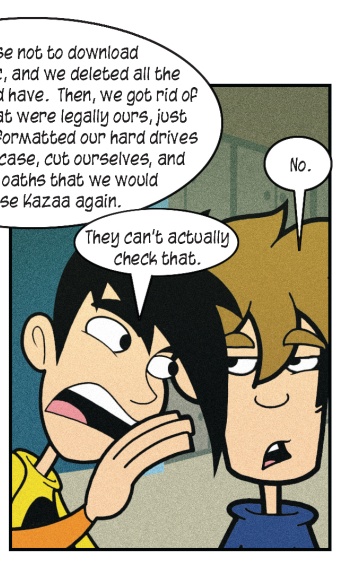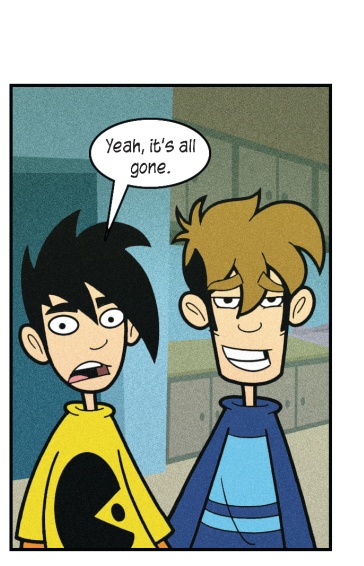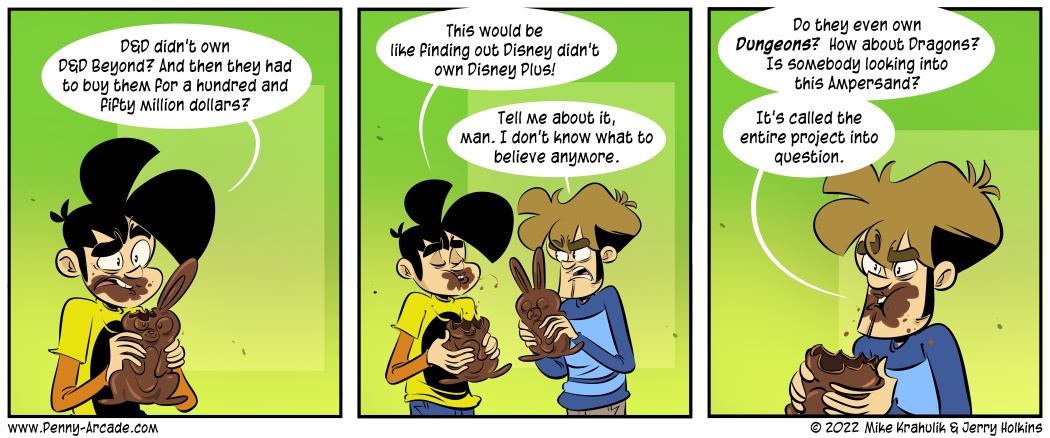Everyone is by now quite aware of the over 200 lawsuits the RIAA has brought against regular human beings, some of whom had no idea what they were doing was questionable legally. We certainly knew that it was, that's part of what made it so great, but that has not stopped us from making a very genuine statement regarding our prior life of sin. We're actually referring to a "program" they've devised, called "Clean Slate," where you can tell them you've been naughty and promise never to be bad ever again. Forgive me for saying so, but it doesn't seem wise to identify yourself. Call me fucking crazy.
"We're trying to send a strong message that you are not anonymous when you participate in peer-to-peer file-sharing and that the illegal distribution of copyrighted music has consequences," said Mitch Bainwol, RIAA chairman and chief executive officer. "And as this case illustrates, parents need to be aware of what their children are doing on their computers."
Wow. I agree with the RIAA on something. That's actually kind of scary.
I'd certainly like to be enraged about this stuff, and I certainly find the RIAA's position on twelve-year olds who share music abhorrent - but this has been coming for a long time. I rarely use file-sharing apps anymore, but it's got nothing to do with morality. The labels have done an excellent job of making them almost useless to me by flooding them with dopplegangers that look like real songs but are actually five minutes of beeps, which is fine when I'm looking for techno. The main reason I was using peer-to-peer services wasn't even convenience, it was because buying CDs at the snooty record store down the street was getting too expensive. They'd look down their nose at my selections, and I'd feel so ashamed if I didn't sort of balance it out with an expensive import from some band I'd never heard of.
The sharing of certain files is illegal. The courts have determined that the programs you use to do it are legal, in the same way that a VCR or a photocopy machine is legal, because they have substantial non-infringing uses - there are a lot of things you can do with them that are perfectly fine. You can share my songs from hell to breakfast, for example, and you'll never hear a cross word from me. But it's easy with a program like Kazaa to see that an individual has files owned by RIAA members, and then if the ISP complies it's easy to find out who you are. So as mad as I want to get, we are essentially talking about people being held accountable for breaking the law. I'm certainly not suggesting that you stop doing it, or whatever - it's up to you, but this is a potent bit of Public Relations Theatre they're enacting and I think it's going to work on a lot of people. I am simply going to suggest that you break the law in a more anonymous fashion. In much the way the people at school might suggest that you employ some manner of prophylactic when engaging in "extra-curricular activities," I am suggesting that you employ a similar tactic in your virtual life - by utilizing applications that anonymize.
(CW)TB out.
tastykins



